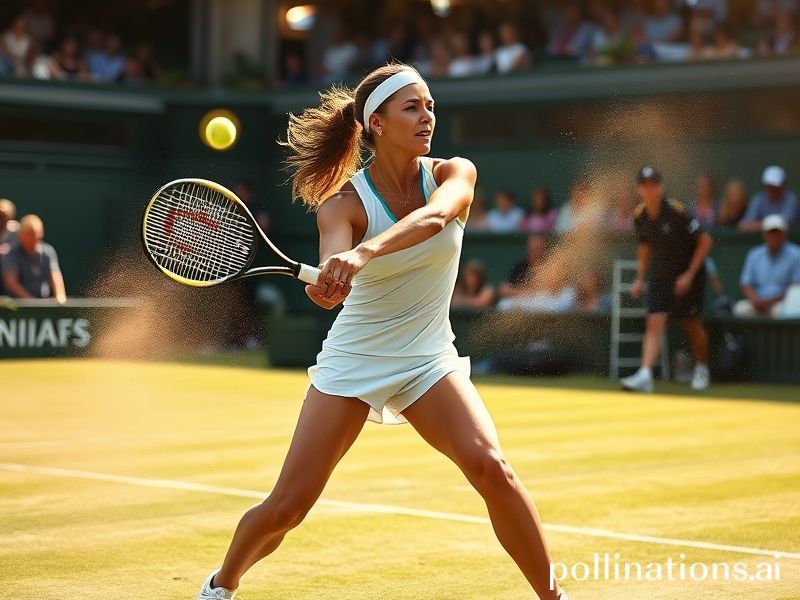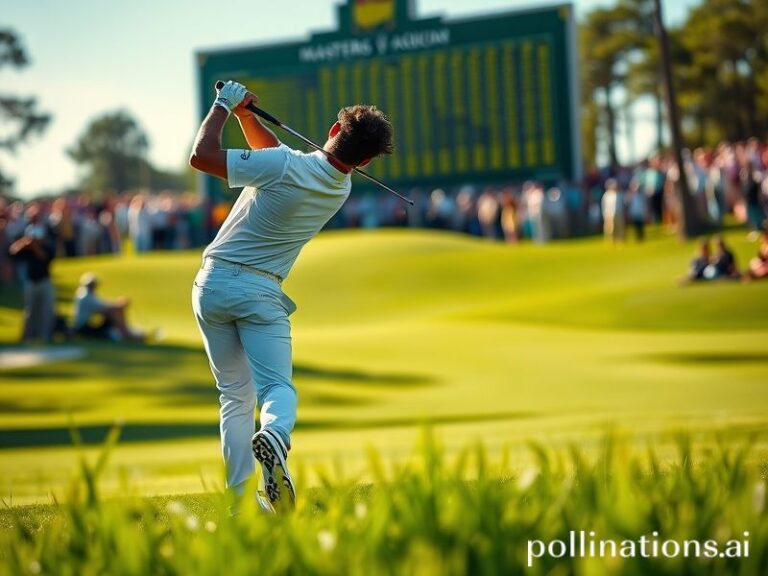Elena Rybakina: The Stateless Champion Making Every Country Claim Her (and the Joke’s on Them)
Moscow-born, Kazakhstani-flagged, Wimbledon-winning Elena Rybakina has become the tennis world’s most exquisite geopolitical Rorschach test—blotchy enough to let every nation see exactly what it wants, provided it squints hard enough. The 24-year-old’s thunderous serve is now measured not only in kilometers per hour but in diplomatic ramifications per Grand Slam.
Consider the optics: a player developed in the Russian system, who switched allegiance to Kazakhstan for reasons that sound suspiciously like “better funding” and “fewer awkward questions,” wins Wimbledon months after Russia is banned from it. The All England Club’s strawberries-and-cream crowd applauds politely, then collectively Googles “Where is Astana?” in between sips of Pimm’s. The Kremlin, meanwhile, claims her as proof that Russian coaching conquers all—never mind that the victory anthem was not a Tchaikovsky overture but the gentle, almost apologetic strains of the Kazakh “My Kazakhstan,” which sounds like elevator music trying to remember Borat with shame.
Rybakina’s career is thus a perfect metaphor for globalization’s late-stage contradictions. She is simultaneously a product, a refugee, and a brand asset—proof that passports are now luxury accessories to be swapped like limited-edition sneakers. The Kazakh tourism board, seizing the moment, released glossy ads featuring Rybakina on horseback against the steppe, as if Genghis Khan had taken up Babolat sponsorships. Meanwhile, Russian state TV ran split-screen footage of her win with commentary praising “our girl,” a phrase that manages to be both possessive and utterly meaningless when the athlete in question is literally holding another flag.
Globally, her success has accelerated an arms race in athlete acquisition that makes the English Premier League look restrained. Tiny Gulf principalities, cash-flush Asian federations, and even the occasional EU microstate now trawl training academies like tech recruiters at a Stanford hackathon. The going rate for a top-20 tennis player’s birth certificate is rumored to rival the GDP of Kiribati; next year the Olympics may feature more mercenaries than the Thirty Years’ War.
Corporate sponsors, naturally, adore her ambiguity. Nike can market her in Moscow malls without updating the posters; European luxury houses can court her in Paris pretending she’s a steppe Cinderella. Only the WTA ranking computer remains unmoved, crunching numbers with the indifference of a Swiss banker who’s seen too many kleptocrats’ deposits.
The darker punchline? Rybakina’s ascent coincides with tennis’s existential crisis—an aging Big Three, cratered TV ratings, and a fanbase that increasingly treats Slams as backdrop for Instagram stories. Into this void steps a quiet woman who speaks in monosyllables and hits aces that sound like artillery. She offers no grunting soap opera, no racquet-smashing meltdowns—just efficient annihilation of the ball and a facial expression suggesting she’s calculating exchange rates mid-rally. In a sport desperate for narrative, she is the accidental protagonist, a blank page onto which we scribble our geopolitical anxieties.
And so the world keeps projecting: Kazakhstan sees soft-power vindication, Russia sees cultural victory by proxy, Britain sees a polite champion who won’t embarrass the royal box, and the rest of us see a reminder that in the 21st century even nationality has become a performance-enhancing drug—injectable, transferable, and undetectable by current testing protocols.
Rybakina will wake up tomorrow, hit the gym, and perhaps wonder why her forehand now carries the weight of post-Soviet identity politics. But the joke’s on us: while nations squabble over the flag on her jacket, she’s already eyeing the next trophy, blissfully aware that medals tarnish but prize money spends the same in any currency. In the end, the only flag that truly matters is the greenback’s—always has been.







